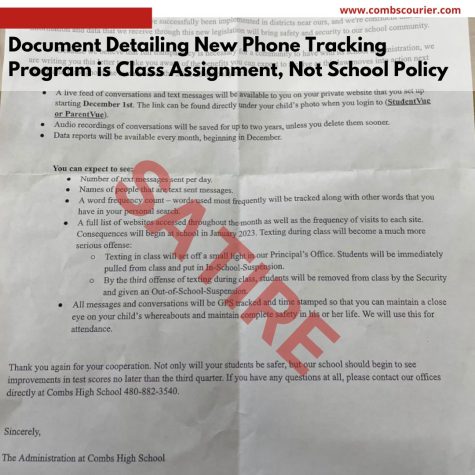ACT and SAT Prep
With the spring months approaching, now is the perfect time to learn just what the ACT and SAT are and how you can get the score you want.
The ACT and SAT are both standardized tests that colleges use to decide whether or not a student is a good fit for their school. While grades aren’t everything, these scores are one of the first things that colleges look at to weed out prospective students. Colleges usually accept both tests but research should be done on the school(s) you want to apply too. Some schools also require the optional writing portion.
ACT:
According to ACT Inc., the ACT is a standardized test traditionally used by west coast schools. It consists of:
- English: 75 questions in 45 minutes.
- 5 passages with comprehension questions
- Math: 60 questions in 60 minutes.
- Pre-Algebra (20-25%)
- Elementary Algebra (15-20%)
- Intermediate Algebra (15-20%)
- Coordinate Geometry (15-20%)
- Plane Geometry (20-25%)
- Trigonometry (5-10%)
- Reading: 40 questions in 35 minutes.
- Grammar rules.
- Vocab
- Spelling
- Science: 40 questions in 35 minutes
- 7 passages with comprehension questions.
- Optional Writing: 40 minutes for one essay.
- Support one of three perspectives on an issue.

SAT:
According to the College Board, the SAT is a standardized test traditionally used by East Coast Schools. It consists of:
- Reading: 52 questions in 65 minutes
- Command of Evidence
- Words in Context
- Writing and Language:44 questions and 35 minutes
- Command of Evidence
- Words in Context
- Expression of Ideas
- Standard English Conventions
- Math with No Calculator: 20 questions in 25 minutes
- Math with Calculator: 38 questions in 55 minutes
- Heart of Algebra
- Problem Solving and Data Analysis
- Passport to Advanced Math
- Additional Topics in Math
- Optional Writing Section: 50 minutes
- Analyze the effectiveness of the author’s argument.
Further breakdowns can be found on sites such as PrepScholar.com
With about 45-75 seconds per question on both tests, comprehension is key. You cannot waste time rereading the passage or question over and over again. To make the most out of your time here are some tips:

General:
- Underline as You Read: Underlining the main points as well as what the question is asking will save you time and help you answer questions faster.
- Read in Context: Oftentimes, questions will ask you to refer to certain lines or graphics. When doing this, read a few lines before and after to understand the context of the information.
- Pencil to Paper: As you take the test, be sure to write out notes and do most of the work with your pencil. It keeps your mind free from having to remember everything and allows you to concentrate on the problems more.
- Practice with Official Questions: Find practice tests or resources by the College Board and ACT Inc. As they are the ones making the test, their practice questions will mimic the test’s, which will give you good practice.
- Skip Hard Questions: All questions are worth the same points. If one question is taking you the same amount of time to solve it when you could be acing five other questions, then skip the hard question for later.
- Always Guess: If you don’t know the answer, always guess. There is no penalty for guessing.
- Take Practice Tests in a Similar Environment: (Quiet, no distracts, etc.)
English and Reading:
- Process of Elimination: As you go throughout the question, cross out the questions that you deduce are wrong. The Sat is a standardized test so there is an absolute answer. There is no credit for half-right answers. Even a single word in the answer can make it wrong. Be objective as you go throughout the questions.
- Punctuation and Grammar Rules: Know your basic grammar rules. Don’t rely on everyday speech too heavily, as it could be wrong.
- Main Idea: Comprehension is critical. Know what each paragraph is focusing on; this will help you understand the passage overall.
- Don’t Waste Time Reading the Questions.
Math:
- Know your Basic Math Concepts and Formulas: This will save you time and allow you to score higher.
- Plugging in Numbers: When face with variables such as ‘x’ or ‘y’, be sure to input numbers, especially the ones in the answer choices, to easily deduce which option is correct.
- Calculator Fluency: Know the ins and outs of the calculator you will use on test day. This will also save you more time.
Science:
- Know What the Variables Mean: Remember what each variable on the graphs mean, as they will allow you to answer the questions correctly.
- Understand the graphs.
- Know what each viewpoint is arguing for.
Writing:
- Practice essays similar to the test you’re taking.
- Practicing writing under a time limit.
- Have a teacher review and grade your essay.
- Be Focused in Your Essays: Find a thesis and stick with it.
- Good Support: Find support for your thesis, it also helps to use real-world examples, not just what is given in the prompt.

Registering for the ACT and SAT:
Visiting their respective websites as well as talking to your school counselor will allow you to register to take the test. Just remember that the optional writing section for both tests has an additional cost.
Conclusion:
Knowing your enemy is half the battle, and by learning more about the SAT and ACT, you are one step closer to acing the test. Just be sure to get a good night’s rest and a healthy breakfast before the test.








